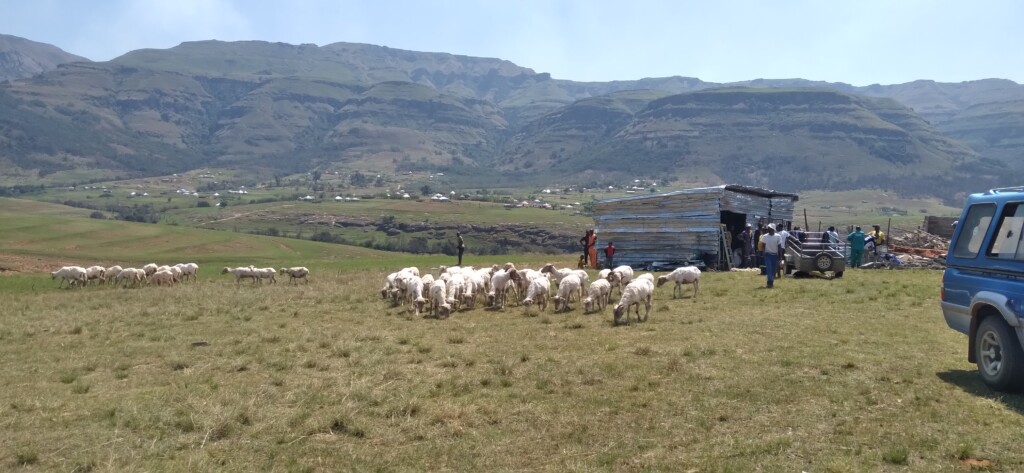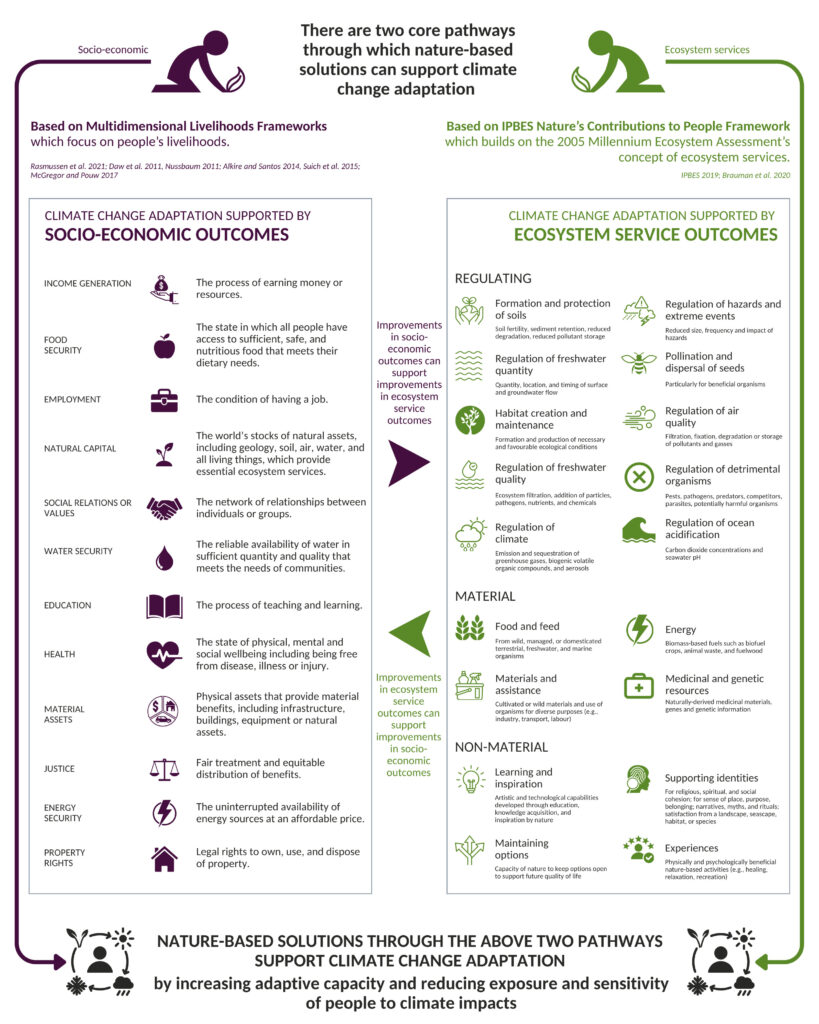Understanding the pathways through which nature-based solutions can support people’s adaptation to climate change

Led by the University of Cape Town partners at ACDI’s People in Nature & Climate (PiNC) Lab in South Africa, the ALBATROSS project has conducted a systematic literature review based on peer-reviewed evidence to figure out the distributional impacts of nature-based solutions in the countries in which the CRD Network is operating –Ghana, Kenya, Madagascar, South Africa, and Tanzania. The aim of this piece of work is to understand the pathways through which nature-based solutions can support climate change adaptation.
Nature-based solutions are actions where people work with nature, or as part of nature to provide local benefits for people and biodiversity. All nature-based solutions (including those focused on nature protection, restoration, sustainable management or design-based) have the potential to support climate change adaptation both when used alone or when integrated with engineered approaches, including grey or hard infrastructure options.
In contrast to the usual approach in these types of studies, researchers have integrated two perspectives for the assessment of the benefits people get from nature-based solutions: on the one hand, they focused on people’s socio-economic well-being, and on the other hand, they considered the ecosystem service outcomes (nature’s contributions to people). This way, they have been able “to capture the full range of pathways by which nature-based solutions might affect people and support their adaptation to climate change”, they stated.
The literature review included 119 peer-reviewed articles, harnessing AI support for data extraction, showing evidence that nature-based solutions support climate change adaptation in the CRD Network countries. The aim of this analysis was twofold: first, they aimed to inform best practices in nature-based solutions design and implementation, and second, they intended to identify gaps on the socio-economic and ecosystem service outcome pathways by which nature-based solutions deliver effective adaptation.
Among the socio-economic outcomes supporting climate change adaptation of nature-based solutions, they found considerable evidence of nature-based solutions bringing income generation, food security, and employment, among others. As for ecosystem services outcomes, most evidence showed the positive effect nature-based solutions can have on soil fertility, regulation of freshwater quantity, habitat creation and maintenance, etc. However, they found lack of evidence on their impact on aspects such as water security, education, and health, regarding the socio-economic outcomes, and regulation of ocean acidification, provision of energy, provision of materials in terms of ecosystem services outcomes.
They also saw that nature-based solutions have not been developed for adapting to all kinds of hazards faced by countries: there was a dominance of nature-based solutions for adaptation to drought-related hazards, while other important hazards, such as flooding, erosion and extreme heat were far less addressed.
The analysis provides country-specific information and advice for implementing nature-based solutions, but, in general terms, they recommend that this implementation should align with national and regional priorities, and strategies need to be context-specific. While nature-based solutions interventions were shown to have overwhelmingly positive outcomes for people and their adaptation to climate change, there are instances where they negatively impact on vulnerable and marginalised groups hampering their adaptation to climate change.
Infographic showing how nature-based solutions can contribute towards climate change adaptation, by Petra Holden (DOI: https://doi.org/10.25375/uct.28644077.v1)
